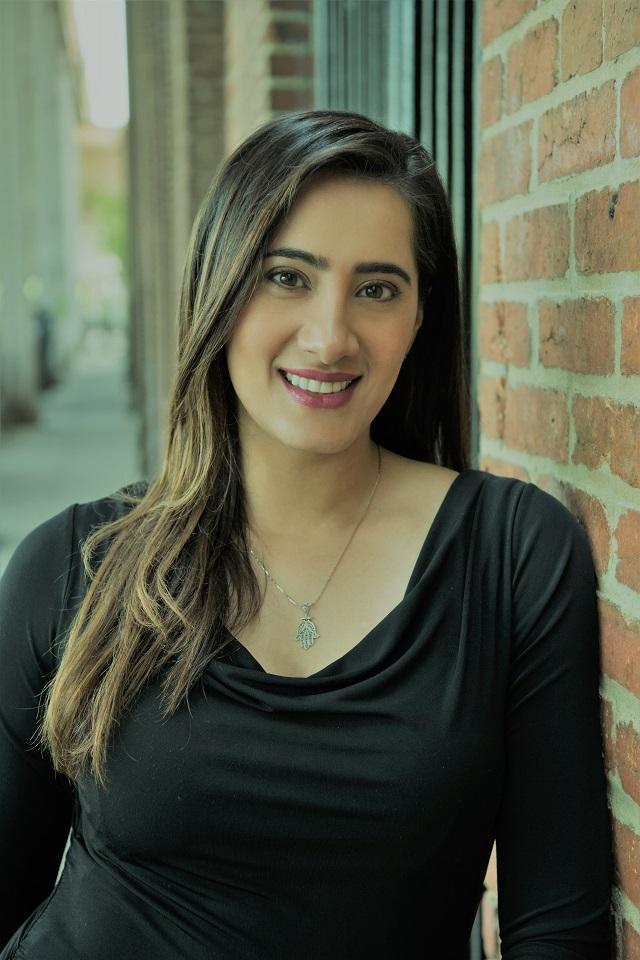Dr. Rukhsana M. Chaudhry is a psychologist who serves as the Director of Mental Health Programming for the American Muslim Health Professionals (AMHP), is an Assistant Professor of Clinical Psychology at the George Washington University, and co-directs trauma programming as a senior psychologist with the Psychiatric Institute of Washington.
In her role at AMHP, she convened the first-ever National Interfaith Anti-Bullying Summit. She also developed the Muslim Youth Identity series, in which American-Muslim speakers delivered Ted-style talks about combating stereotypes and prejudice to diverse national audiences in Washington D.C., New York, and Chicago.
Dr. Chaudhry also created a self-esteem building and empowerment program for women and girls in rural and urban areas of Pakistan. She has treated traumatized women and children from earthquake-affected Kashmir, women in the U.S. under the Violence Against Women Act (VAWA), and Ethiopian, Eritrean, and Kenyan survivors of Female Genital Mutilation.
We are grateful that Dr. Chaudhry is the latest healthcare advocate to participate in our Five-Question Interview:

1. What do you consider the most important healthcare work that you and American Muslim Health Professionals do?
My answer to this revolves around my role as director of mental health programming, of course. I think our most important work is reducing shame and stigma around mental health issues. Most people experiencing these issues believe they must hide their experience, and this perpetuates the idea that trauma or depression, or even illnesses like bipolar disorder, are some kind of weakness. In everything we do, we try to counteract the notion that mental health issues are something to be ashamed of.
We started this work addressing this in our own Muslim community, but then we saw that other communities deal with shame and hiding, too. We believe that, when any of us acknowledge and address our mental health challenges, the experience allows us to connect better to other people, to create better relationships, and build the empathy that we really need in our communities today. I believe that education on mental health issues is a form of social justice for all communities.
- What motivates you to do your work?
The interfaith work we do at AMHP motivates me a great deal. Mental health impacts all of us. My faith tells me that, when one of us is suffering, it is like all of us are. That lesson motivates me to want to help with health issues for every community. We are all in the same boat. Mental health does not discriminate, we know that.
- What are the biggest challenges you face?
One of the biggest challenges that overlaps across communities and society over all is our connection to each other, which in my opinion profoundly impacts the state of our mental health. We see trauma inflicted daily in our schools, communities, and public places. No one is immune from tragedy in their lives. Ultimately, the more disconnected we feel from each other, the more likely we are to inflict violence on one another.
There are also social relationship issues our youth are dealing with that comes from the same place of disconnection. We need to start teaching our young children about the profound impacts of these disconnections, whether those disconnections come from being of different religions or races or whatever. Those kind of disconnections at a young age will have a long-term impact.
- What do you think the U.S. healthcare system should look like?
I’m a firm believer in mental health treatment parity. It is great that a lot of people who did not have access to mental health treatment before now have access to it, due to recent policies like the Mental Health Parity Act of 2008. But that can be taken away. We at AMHP have done everything we can to stop that from happening, including marching to Capitol Hill with other faith organizations for joint advocacy to our elected leaders.
Our faith informs our view that the most downtrodden people must have access to everything they need to be healthy, including pharmaceutical care. That is why AMHP was formed, and why there are so many Muslim-led free health clinics. The idea that individuals would have to drive across the border to Canada to afford their medicines is antithetical to our faith’s notion of a healthcare system that provides for all people.
- What role do you see people of faith and faith communities playing in making the needed changes?
I am located in Washington, DC, so I have had the chance to see interfaith coalitions come together on healthcare, and I think they have been effective. We come together across faiths in times of crises, such as happened after the Pittsburgh synagogue shootings. But it is important that we come together not just in times of tragedy.
That is why we at AMHP convened the first-ever Interfaith Bullying Summit, partnering with five different faith groups, to tackle religious-based bullying. We know that is a pathway for so many mental health issues for both the victim and the bully.
This interview has been condensed. For more information about AMHP’s Mental Health Awareness campaign, click here.
Faith and Healthcare Notes
Working People Cannot Afford Their Average Health Insurance Deductible. Credit to Axios Vitals for piecing together the disturbing conclusion of newly-released data: A Federal Reserve report says that almost 40% of Americans would have trouble handling a surprise expense of $400, but the average health insurance deductible is over three times that amount.
Tables Turned: A Medical Debt Collector Finds Itself Sued. A federal court lawsuit alleging a violation of the Fair Debt Collection Practices Act for collecting on a 17-year-old debt—that the patient had incurred for treatment when she was a child.
Insulin Caravans Make National News. This week, the Washington Post covers the insulin caravans to Canada that were featured in Faith in Healthcare and Sojourners last week. Faith in Healthcare intends to meet the next caravan on its route, so look for more reporting soon on these powerful actions.
